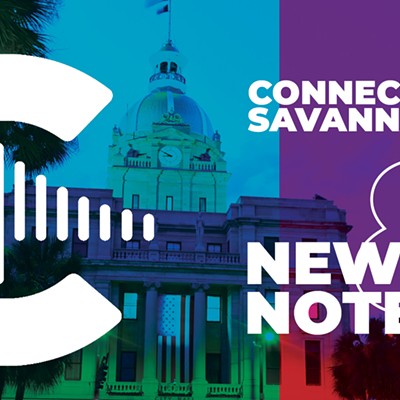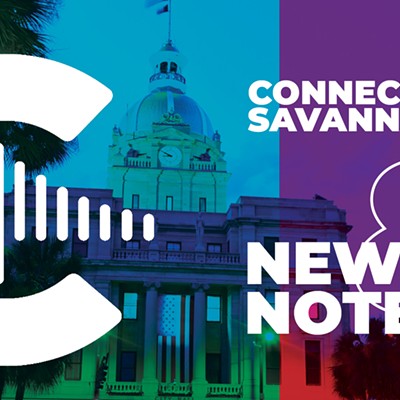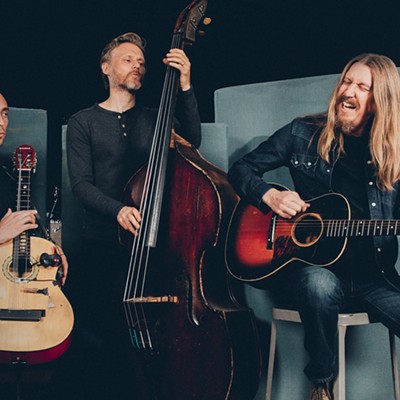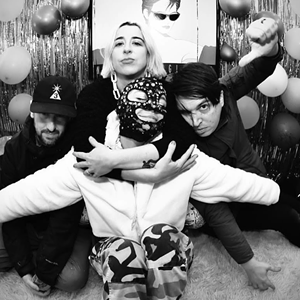Sarah Jarosz has been nominated for a Grammy, mastered three instruments, garnered heaps of critical praise, performed with the likes of David Grisman and Ricky Skaggs, and attends one of the country’s best music schools.
And she’s not even 19 yet.
It would be enough of an accomplishment for a person so young to so skillfully combine a smoky, bluesy voice that’s equal parts Lucinda Williams and Fiona Apple with amazing bluegrass chops on the mandolin, clawhammer banjo and guitar.
But Jarosz — pronounced “ja-rose” — doesn’t stop there. She’s also a master songwriter as well, perhaps her truest talent.
Her debut CD, Song Up In Her Head (Sugar Hill), is a treasure trove of Dylanesque lyric images, such as those of the haunting title track, intense instrumentals like the Grammy–nominated “Mansinneedof,” and two inspired covers: Tom Waits’ “Come On Up To The House” and The Decemberists’ murder ballad “Shankill Butchers.”
The Austin, Texas, native performs March 22 and 23 at the Charles H. Morris Center as part of the Connect Americana series of the Savannah Music Festival. She spoke to us from her dorm room in Boston, where she currently attends the New England Conservatory of Music.
You’re in a traditional genre where you could make a great living just playing other people’s songs. If someone said that you could be a huge success but you’d never record another original song again, would you be devastated or would you just carry on?
Sarah Jarosz: Oh, it would be super devastating! One of my favorite parts about music is getting to write and record my songs and arrange them. It’s always kind of been a natural thing for me. No one ever told me you should write songs or you shouldn’t write songs.
I was about 12 when I first started writing songs. It’s something that I really love and I think that if I couldn’t do it anymore I’d be really sad (laughs).
Songwriting, much more than playing an instrument, seems to be a skill you either have or you don’t. You can’t really learn songwriting at school, can you?
Sarah Jarosz: Well, technically you can, you can study songwriting in school. But I definitely agree that it’s something people have. I work on it all the time to try and get better. It’s all about being really open and aware of what’s going on around you and being a good listener, I think. To me a big part of it is being inspired by my favorite songwriters.
I’m guessing a lot of your favorite songwriters are outside of your genre.
Sarah Jarosz: I guess so, to a certain extent. I consider myself not to be closed off to any genre. I feel like I fall into the same type of music as Tim O’Brien or Darrell Scott, who are some of my biggest influences as far as songwriting goes.
But I listen to all sorts of songwriters: Patty Griffin, Sean Colvin, Bob Dylan, Wilco, The Decemberists.
Wilco’s playing at the Savannah Music Festival this year too.
Sarah Jarosz: Right, I noticed that, that’s so awesome!
So how’s the college thing going? Are you able to keep the music career going along with the education?
Sarah Jarosz: I’m in my second semester as an undergraduate at the New England Conservatory of Music. I’m really loving it. My major is called Contemporary Improvisation. The majority of students at NEC are classical students, but the Contemporary Improv program allows you to really develop your personal style and really focus on that through ear training and all different types of music, like world music.
For instance, last month I was in a world music ensemble and a Jewish music ensemble, and this month I’m studying jazz improv. It’s all over the place, and it’s really getting me out of my comfort zone musically.
To the other students, are you the girl who was just up for a Grammy, or are you just part of the gang?
Sarah Jarosz: I always feel like just one of the gang, and that’s why I like it (laughs). One of the reasons I chose NEC is because it’s a smaller school, only 750 students. I didn’t necessarily want to be treated differently, because I want to learn just as much as the next person.
In bluegrass and traditional music, nothing was ever written down and almost nobody could read music. By studying music in an academic setting do you risk overanalyzing things, destroying what’s real about it?
Sarah Jarosz: That’s a really good question. When I was trying to figure out what I wanted to do after high school — whether I should just go straight into music or study music in school — there were definitely people who told me, ‘Oh, if you study music in school you’ll lose the soul of it, you’re going to lose the essence of what it’s about.’ But I really wanted to come here and be able to learn the theory of it all.
The way I look at it, you can always learn something from whatever you’re doing. I do think there’s something to be said for knowing the theory of it all, but also to balance it out I definitely still jam all the time, and am constantly listening to all kinds of music. So I do think it’s all about having a balance and not going too far in a certain direction.
In my experience people who play several different instruments go through mood swings, where they’ll get tired of one instrument and focus on another for a while. Are you like that?
Sarah Jarosz: Yeah, I do find myself going through phases of, wow, I’m really playing the mandolin a lot right now, or I’m really inspired to write songs on the banjo right now. As a songwriter when I’m in a lull, or a writer’s block phase, sometimes it really helps to be able to switch to another instrument and get more inspiration there.
I would never ask a musician what’s their favorite instrument, but is there one that’s more conducive to songwriting for you?
Sarah Jarosz: I have my mandolin and my clawhammer banjo and my guitar, and about a year ago I got my octave mandolin. Sometimes it seems when I get a new instrument I’m writing a lot on that instrument. When I first got my banjo I was writing on the banjo all the time. I do feel like writing on my octave mandolin has a lot of possibilities. But it definitely varies.
You often sing while playing the banjo, which I can’t imagine. That has to be super difficult, right?
Sarah Jarosz: I learned the banjo kind of singing along with it. I’ve been singing my whole life, but when I really started to get serious about it I’d be singing with an instrument in my hand.
Honestly it feels weird to be singing and not have an instrument. That’s just the way it naturally is for me. It helps with my comfort in the song, to be able to grasp it on the instrument and be singing at the same time.
When you were up for the Best Country Instrumental Grammy, did you wish they had labeled that song something else other than Country?
Sarah Jarosz: I definitely was OK with it! (laughs) It was an honor even to be nominated for a Grammy. But I know what you mean. It’s hard to say, because personally I wouldn’t call that song country. I wouldn’t put it into that label or genre. But I guess I can see in the Grammy scheme of things how it would fit in. I’m definitely not complaining!
Between school and touring, are you able to find any time at all to work on a second album?
Sarah Jarosz: Over Christmas break I started working on my next record. I’m kind of, again, having to weave it around my school schedule, and this summer I’ll probably be working on it pretty intensely. Hopefully early next year something could be out.
It is hard sometimes balancing my school schedule and my career, trying to find time, especially for songwriting. It’s hard to find free time to do that.
Bluegrass comes from Celtic music, and Boston has a strong Celtic tradition. Are you finding any of those roots seeping into your musical environment up there in school, or is Boston just too big a city for that really to come into play?
Sarah Jarosz: I think it definitely comes up. It’s hard to deny that it’s had a big influence on a lot of traditional styles of music. Especially being in Boston with a strong sense of the Celtic roots here. I maybe haven’t necessarily studied it on its own in school, but I’ve noticed I can trace some things to that.
A good example of somebody who’s really influenced me in that sense is Tim O’Brien. A lot of his music is really influenced by the Irish tradition.
Your vocal style isn’t what people usually associate with bluegrass. You throw in the occasional blue note, there’s some jazz and R&B in there. Is that conscious or is that just what happens when you open your mouth to sing?
Sarah Jarosz: A little bit of both. It’s definitely my voice, but I’m constantly being influenced by new things, and I’ve never been one to be closed off to new directions. I think already in the little bit of recording I’ve done for the next record, I’m trying to do some new things. It’s exciting. I’m not closing any doors, and I’m just seeing what happens.
Sarah Jarosz/Sierra Noble
Savannah Music Festival
When: March 22 at 7 p.m.; March 23 at 12:30 and 7 p.m.
Where: Charles H. Morris Center, 10 E. Broad St.
Cost: $12–22
Info: savannahmusicfestival.org
































